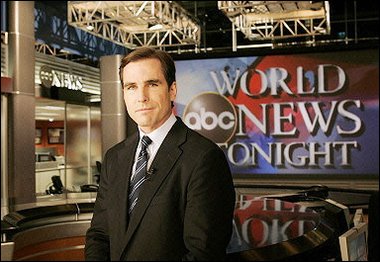From the latest issue of
The Nation magazine ...
The Impeachment of George W. Bush
By Ex-Representative Elizabeth Holtzman
Principal author of Congressional Resolutions to Impeach Richard Nixon
Finally, it has started. People have begun to speak of impeaching President George W. Bush--not in hushed whispers but openly, in newspapers, on the Internet, in ordinary conversations and even in Congress. As a former member of Congress who sat on the House Judiciary Committee during the impeachment proceedings against President Richard Nixon, I believe they are right to do so.
I can still remember the sinking feeling in the pit of my stomach during those proceedings, when it became clear that the President had so systematically abused the powers of the presidency and so threatened the rule of law that he had to be removed from office. As a Democrat who opposed many of President Nixon's policies, I still found voting for his impeachment to be one of the most sobering and unpleasant tasks I ever had to undertake. None of the members of the committee took pleasure in voting for impeachment; after all, Democrat or Republican, Nixon was still our President.
At the time, I hoped that our committee's work would send a strong signal to future Presidents that they had to obey the rule of law. I was wrong.
Like many others, I have been deeply troubled by Bush's breathtaking scorn for our international treaty obligations under the United Nations Charter and the Geneva Conventions. I have also been disturbed by the torture scandals and the violations of US criminal laws at the highest levels of our government they may entail, something I have written about in these pages [see Holtzman, "Torture and Accountability," July 18/25, 2005]. These concerns have been compounded by growing evidence that the President deliberately misled the country into the war in Iraq. But it wasn't until the most recent revelations that President Bush directed the wiretapping of hundreds, possibly thousands, of Americans, in violation of the Foreign Intelligence Surveillance Act (FISA)--and argued that, as Commander in Chief, he had the right in the interests of national security to override our country's laws--that I felt the same sinking feeling in my stomach as I did during Watergate.
As a matter of constitutional law, these and other misdeeds constitute grounds for the impeachment of President Bush. A President, any President, who maintains that he is above the law--and repeatedly violates the law--thereby commits high crimes and misdemeanors, the constitutional standard for impeachment and removal from office. A high crime or misdemeanor is an archaic term that means a serious abuse of power, whether or not it is also a crime, that endangers our constitutional system of government.
The framers of our Constitution feared executive power run amok and provided the remedy of impeachment to protect against it. While impeachment is a last resort, and must never be lightly undertaken (a principle ignored during the proceedings against President Bill Clinton), neither can Congress shirk its responsibility to use that tool to safeguard our democracy. No President can be permitted to commit high crimes and misdemeanors with impunity.
But impeachment and removal from office will not happen unless the American people are convinced of its necessity after a full and fair inquiry into the facts and law is conducted. That inquiry must commence now.
Warrantless Wiretaps
On December 17 President Bush acknowledged that he repeatedly authorized wiretaps, without obtaining a warrant, of American citizens engaged in international calls. On the face of it, these warrantless wiretaps violate FISA, which requires court approval for national security wiretaps and sets up a special procedure for obtaining it. Violation of the law is a felony.
While many facts about these wiretaps are unknown, it now appears that thousands of calls were monitored and that the information obtained may have been widely circulated among federal agencies. It also appears that a number of government officials considered the warrantless wiretaps of dubious legality. Reportedly, several people in the National Security Agency refused to participate in them, and a deputy attorney general even declined to sign off on some aspects of these wiretaps. The special FISA court has raised concerns as well, and a judge on that court has resigned, apparently in protest.
FISA was enacted in 1978, against the backdrop of Watergate, to prevent the widespread abuses in domestic surveillance that were disclosed in Congressional hearings. Among his other abuses of power, President Nixon ordered the FBI to conduct warrantless wiretaps of seventeen journalists and White House staffers. Although Nixon claimed the wiretaps were done for national security purposes, they were undertaken for political purposes and were illegal. Just as Bush's warrantless wiretaps grew out of the 9/11 attacks, Nixon's illegal wiretaps grew out of the Vietnam War and the opposition to it. In fact, the first illegal Nixon wiretap was of a reporter who, in 1969, revealed the secret bombing of Cambodia, a program that President Nixon wanted to hide from the American people and Congress. Nixon's illegal wiretaps formed one of the many grounds for the articles of impeachment voted against him by a bipartisan majority of the House Judiciary Committee.
Congress explicitly intended FISA to strike a balance between the legitimate requirements of national security on the one hand and the need both to protect against presidential abuses and to safeguard personal privacy on the other. From Watergate, Congress knew that a President was fully capable of wiretapping under a false claim of national security. That is why the law requires court review of national security wiretaps. Congress understood that because of the huge invasion of privacy involved in wiretaps, there should be checks in place on the executive branch to protect against overzealous and unnecessary wiretapping. At the same time, Congress created special procedures to facilitate obtaining these warrants when justified. Congress also recognized the need for emergency action: The President was given the power to start a wiretap without a warrant as long as court permission was obtained within three days.
FISA can scarcely be claimed to create any obstacle to justified national security wiretaps. Since 1978, when the law was enacted, more than 10,000 national security warrants have been approved by the FISA court; only four have been turned down.
Two legal arguments have been offered for the President's right to violate the law, both of which have been seriously questioned by members of Congress of both parties and by the nonpartisan Congressional Research Service in a recent analysis. The first--highly dangerous in its sweep and implications--is that the President has the constitutional right as Commander in Chief to break any US law on the grounds of national security. As the CRS analysis points out, the Supreme Court has never upheld the President's right to do this in the area of wiretapping, nor has it ever granted the President a "monopoly over war-powers" or recognized him as "Commander in Chief of the country" as opposed to Commander in Chief of the Army and Navy. If the President is permitted to break the law on wiretapping on his own say-so, then a President can break any other law on his own say-so--a formula for dictatorship. This is not a theoretical danger: President Bush has recently claimed the right as Commander in Chief to violate the McCain amendment banning torture and degrading treatment of detainees. Nor is the requirement that national security be at stake any safeguard. We saw in Watergate how President Nixon falsely and cynically used that argument to cover up ordinary crimes and political misdeeds.
Ours is a government of limited power. We learn in elementary school the concept of checks and balances. Those checks do not vanish in wartime; the President's role as Commander in Chief does not swallow up Congress's powers or the Bill of Rights. Given the framers' skepticism about executive power and warmaking--there was no functional standing army at the beginning of the nation, so the President's powers as Commander in Chief depended on Congress's willingness to create and expand an army--it is impossible to find in the Constitution unilateral presidential authority to act against US citizens in a way that violates US laws, even in wartime. As Justice Sandra Day O'Connor recently wrote, "A state of war is not a blank check for the President when it comes to the rights of the nation's citizens."
The second legal argument in defense of Bush's warrantless wiretaps rests on an erroneous statutory interpretation. According to this argument, Congress authorized the Administration to place wiretaps without court approval when it adopted the 2001 resolution authorizing military force against the Taliban and Al Qaeda for the 9/11 attacks. In the first place, the force resolution doesn't mention wiretaps. And given that Congress has traditionally placed so many restrictions on wiretapping because of its extremely intrusive qualities, there would undoubtedly have been vigorous debate if anyone thought the force resolution would roll back FISA. In fact, the legislative history of the force resolution shows that Congress had no intention of broadening the scope of presidential warmaking powers to cover activity in the United States. According to Senator Tom Daschle, the former Senate majority leader who negotiated the resolution with the White House, the Administration wanted to include language explicitly enlarging the President's warmaking powers to include domestic activity. That language was rejected. Obviously, if the Administration felt it already had the power, it would not have tried to insert the language into the resolution.
What then was the reason for avoiding the FISA court? President Bush suggested that there was no time to get the warrants. But this cannot be true, because FISA permits wiretaps without warrants in emergencies as long as court approval is obtained within three days. Moreover, there is evidence that the President knew the warrantless wiretapping was illegal. In 2004, when the violations had been going on for some time, President Bush told a Buffalo, New York, audience that "a wiretap requires a court order." He went on to say that "when we're talking about chasing down terrorists, we're talking about getting a court order before we do so."
Indeed, the claim that to protect Americans the President needs to be able to avoid court review of his wiretap applications rings hollow. It is unclear why or in what way the existing law, requiring court approval, is not satisfactory. And, if the law is too cumbersome or inapplicable to modern technology, then it is unclear why the President did not seek to revise it instead of disregarding it and thus jeopardizing many otherwise legitimate anti-terrorism prosecutions. His defenders' claim that changing the law would have given away secrets is unacceptable. There are procedures for considering classified information in Congress. Since no good reason has been given for avoiding the FISA court, it is reasonable to suspect that the real reason may have been that the wiretaps, like those President Nixon ordered in Watergate, involved journalists or anti-Bush activists or were improper in other ways and would not have been approved.
It is also curious that President Bush seems so concerned with the imaginary dangers to Americans posed by US courts but remains so apparently unconcerned about fixing some of the real holes in our security. For example, FBI computers--which were unable to search two words at once, like "flight schools," a defect that impaired the Bureau's ability to identify the 9/11 attackers beforehand--still haven't been brought into the twenty-first century. Given Vice President Cheney's longstanding ambition to throw off the constraints on executive power imposed in response to Watergate and the Vietnam War, it may well be that the warrantless wiretap program has had much more to do with restoring the trappings of the Nixon imperial presidency than it ever had to do with protecting national security.
Subverting Our Democracy
A President can commit no more serious crime against our democracy than lying to Congress and the American people to get them to support a military action or war. It is not just that it is cowardly and abhorrent to trick others into giving their lives for a nonexistent threat, or even that making false statements might in some circumstances be a crime. It is that the decision to go to war is the gravest decision a nation can make, and in a democracy the people and their elected representatives, when there is no imminent attack on the United States to repel, have the right to make it. Given that the consequences can be death for hundreds, thousands or tens of thousands of people--as well as the diversion of vast sums of money to the war effort--the fraud cannot be tolerated. That both Lyndon Johnson and Richard Nixon were guilty of misleading the nation into military action and neither was impeached for it makes it more, not less, important to hold Bush accountable.
Once it was clear that no weapons of mass destruction would be found in Iraq, President Bush tried to blame "bad intelligence" for the decision to go to war, apparently to show that the WMD claim was not a deliberate deception. But bad intelligence had little or nothing to do with the main arguments used to win popular support for the invasion of Iraq.
First, there was no serious intelligence--good or bad--to support the Administration's suggestion that Saddam Hussein and Al Qaeda were in cahoots. Nonetheless, the Administration repeatedly tried to claim the connection to show that the invasion was a justified response to 9/11 (like the declaration of war against Japan for Pearl Harbor). The claim was a sheer fabrication.
Second, there was no reliable intelligence to support the Administration's claim that Saddam was about to acquire nuclear weapons capability. The specter of the "mushroom cloud," which frightened many Americans into believing that the invasion of Iraq was necessary for our self-defense, was made up out of whole cloth. As for the biological and chemical weapons, even if, as reported, the CIA director told the President that these existed in Iraq, the Administration still had plenty of information suggesting the contrary.
The deliberateness of the deception has also been confirmed by a British source: the Downing Street memo, the official record of Prime Minister Tony Blair's July 2002 meeting with his top Cabinet officials. At the meeting the chief of British intelligence, who had just returned from the United States, reported that "Bush wanted to remove Saddam, through military action, justified by the conjunction of terrorism and WMD. But the intelligence and facts were being fixed around the policy." In other words, the Bush Administration was reported to be in the process of cooking up fake intelligence and facts to justify going to war in Iraq.
During the Nixon impeachment proceedings, I drafted the resolution of impeachment to hold President Nixon accountable for concealing from Congress the bombing of Cambodia he initiated. But the committee did not approve it, probably because it might appear political--in other words, stemming from opposition to the war instead of to the President's abuse of his warmaking powers.
With respect to President Bush and the Iraq War, there is not likely to be any such confusion. Most Americans know that his rationale for the war turned out to be untrue; for them the question is whether the President lied, and if so, what the remedies are for his misconduct.
Next Steps
Mobilizing the nation and Congress in support of investigations and the impeachment of President Bush is a critical task that has already begun, but it must intensify and grow. The American people stopped the Vietnam War--against the wishes of the President--and forced a reluctant Congress to act on the impeachment of President Nixon. And they can do the same with President Bush. The task has three elements: building public and Congressional support, getting Congress to undertake investigations into various aspects of presidential misconduct and changing the party makeup of Congress in the 2006 elections.
Drumming up public support means organizing rallies, spearheading letter-writing campaigns to newspapers, organizing petition drives, door-knocking in neighborhoods, handing out leaflets and deploying the full range of mobilizing tactics. Organizations like AfterDowningStreet.org and ImpeachPac.org, actively working on a campaign for impeachment, are able to draw on a remarkably solid base of public support. A Zogby poll taken in November--before the wiretap scandal--showed more than 50 percent of those questioned favored impeachment of President Bush if he lied about the war in Iraq.
An energized public must in turn bear down on Congress. Constituents should request meetings with their Senators and Representatives to educate them on impeachment. They can also make their case through e-mail, letters and phone calls. Representatives and Senators should be asked specifically to support hearings on and investigations into the deceptions that led to the Iraq War and President Bush's role in the torture scandals. Senators should also be asked to insure that the hearings already planned by the Senate Judiciary Committee into warrantless wiretaps are comprehensive. The hearings should evaluate whether the wiretaps were genuinely used for national security purposes and why the President chose to violate the law when it was so easy to comply with it. Representatives should specifically be asked to co-sponsor Congressman John Conyers's resolution calling for a full inquiry into presidential abuses.
Finally, if this pressure fails to produce results, attention must be focused on changing the political composition of the House and Senate in the upcoming 2006 elections. If a Republican Congress is unwilling to investigate and take appropriate action against a Republican President, then a Democratic Congress should replace it.
As awful as Watergate was, after the vote on impeachment and the resignation of President Nixon, the nation felt a huge sense of relief. Impeachment is a tortuous process, but now that President Bush has thrown down the gauntlet and virtually dared Congress to stop him from violating the law, nothing less is necessary to protect our constitutional system and preserve our democracy.









